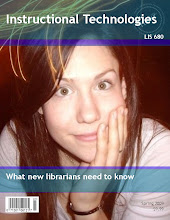As far as my lesson planning goes, I find myself debating between focusing on an “imperative” vs. “fun” or “extra” lesson, which is in itself an interesting way to approach lesson planning. I’m recognizing as I write that my job here is to create one that is both, one that effectively teaches the nuts and bolts while incorporating the bells and whistles that might draw the most reluctant in… and keep them engaged.
My principal is all about inquiry-based learning, and, for better or worse, I’d like to develop a lesson plan that screams INQUIRY-BASED LEARNING.
Borrowing from Jakes, Pennington and Knodle’s definition of inquiry-based learning, the objectives of the lesson are to set up conditions that allow students to:
- experience a process through which they formulate investigative questions (ideally that are directly relevant to them)
- (efficiently) obtain factual information, and
- build knowledge that ultimately reflects their answer to the original question… and introduces more questions, the answers to which (now, hopefully, more easily found) will further their knowledge and will in turn introduce more questions!
I’d ideally like to design a lesson that has students engaging in cooperative teams, though it wouldn’t have to. I know both the rewards and, well, dramas that team projects can bring about. Assessing/grading individual contributions to group projects can also be tricky.
I find comfort in considering the final product to be a well-defined and thought out but pliable process.
Beyond conveying foundation information, I aim to avoid “What is…” questions* and to steer more toward, “What plan can I develop for…” or “What might be done in order to…” questions addressing real life scenarios.
Again drawing from the Jakes, Pennington and Knodle reading, my lesson will:
- Develop a search strategy
- Locate information
- Filter, distill, and cross-reference
- Evaluate the amount of information (what’s missing?)
- Develop the answer(s) to the question
- Develop a ‘product’ to represent the answer(s) in a cohesive, creative manner
Along with teaching and guiding students through the process of obtaining and evaluating information, I do think that it is incredibly important to focus on how to “package” the information gathered in a way—the way—that is assigned by the designer of the project. I see students so often earn a lower grade on a project simply because they do not make sure, after all the work they have done, that each component of the assignment is clearly addressed. Checklists can be handy here; in initial assignments I think they should be provided, and in later assignments the students should be expected to create them themselves from the written assignment.
An ideal assignment response will require intentional selection and articulated justification of the information provided.
I like the idea of establishing (6-10) foundation or “What is…?” questions to provide structure and guide the inquiry process (this is essentially what I’m doing in fleshing out what kind of elements I’d like my lesson plan to contain). Providing (and receiving!) feedback to these questions is an excellent next step. In the school setting, I see all the time how important it is to provide timely feedback to students; in real life, this brings to mind questions of how much responsibility students must assume to fully understand the assignment and go ahead and complete it to the best of their ability, and how thoroughly (overworked!) teachers must scaffold and provide constant individual feedback.
I find it interesting that I am constantly considering readings and concepts in light of what I know to be true in the school setting in which I’m currently immersed. Some ideals fly. Others don’t, and primarily, I think, because of limits on time, resources, and human capabilities.
My question is whether technology is expanding these capabilities or whether it is just increasing demands at a disproportionate rate.
Too much broad wondering, I think. More concretely, I’d like to focus on a lesson involving some combo of the following:
- Photography
- Evaluating web sites
- Understanding and experimenting with the ability to produce and share content
I’d like this lesson to be experienced—and formulated, in part?—by high school aged students.
---
* I found this quote from Jakes, Pennington and Knodle to be really thought provoking:
“Effectively, in this day of digital ‘cutting and pastin,’ asking a ‘What is..” question is a license to plagiarize.”
Is it really ever excused to plagiarize (for some weird reason this brings to mind the folks who sued McDonald’s for their obesity)? Beyond considering how thought –provoking a question is when phrasing an assignment prompt or essential question, are we to actively consider how plagiarism-encouraging/allowing an assignment is?
Another question:
Could inspiration software, aimed to help students generate foundation questions actually be hampering students’ ability to use their own brain power and creativity to generate questions independently? I’ve heard a number of people from older generations mention how new-fangled toys have ruined kids’ imagination, and ability to entertain themselves independently (as, of course, they were able to do for hours and years on end).
Sunday, March 8, 2009
Subscribe to:
Post Comments (Atom)

To answer your last question, I do think some of today's technology does inhibit our ability to think creatively and get the brain juices flowing. We are so used to a society where everything is supposed to happen instantaneously, where a delay of few seconds makes us irritable. Whereas kids of 15, 20, 25, 30 years ago were happy to play with board games, yo-yos, jacks, marbles, jumprope, etc., today's kids need intense stimulation, such as what they get from playing video games. Having constant motion and stimulation prevents one from thinking independently and is inherently harmful, especially in the long run. Perhaps we should try to reintroduce the good old fashioned board games (Life, Monopoly, Rummycub, etc.) to our children and students and see how they flourish.
ReplyDelete